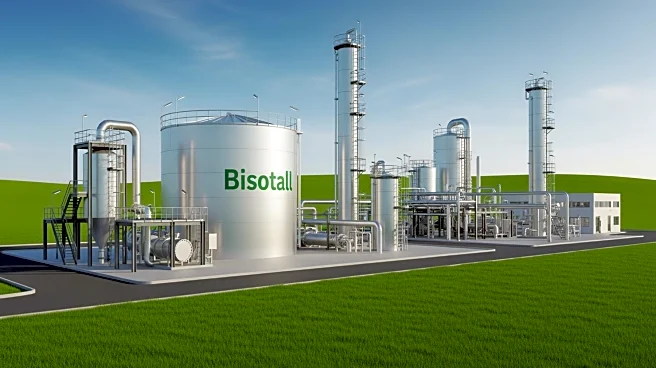What's Happening?
The U.S. Environmental Protection Agency (EPA) has released revised Renewable Volume Obligations (RVOs) for biomass-based diesel, significantly increasing requirements for 2026-2027. The new RVOs reflect
a substantial rise in biomass-based diesel production capacity, driven by higher renewable diesel output and more stringent small refinery exemptions. These changes are expected to impact D4 Renewable Identification Number (RIN) generation and the physical biomass-based diesel market.
Why It's Important?
The revised RVOs represent a major shift in the U.S. renewable fuel landscape, potentially boosting the biomass-based diesel industry and influencing feedstock markets. The increase in RVOs could lead to higher demand for renewable diesel, affecting producers, refiners, and agricultural sectors involved in feedstock supply. This regulatory change may also impact compliance strategies for obligated parties under the Renewable Fuel Standard.
What's Next?
The biomass-based diesel industry will need to ramp up production to meet the new RVOs, potentially leading to increased investment in renewable diesel facilities and feedstock supply chains. Stakeholders will be monitoring the EPA's finalization of these obligations and their impact on market dynamics. Future developments may include adjustments in compliance strategies and potential policy responses from industry groups.
Beyond the Headlines
The increase in RVOs highlights the ongoing transition towards renewable energy sources and the challenges associated with balancing environmental goals with economic realities. The implications for feedstock markets and the broader agricultural sector could be profound, necessitating careful management of resources and supply chains.









